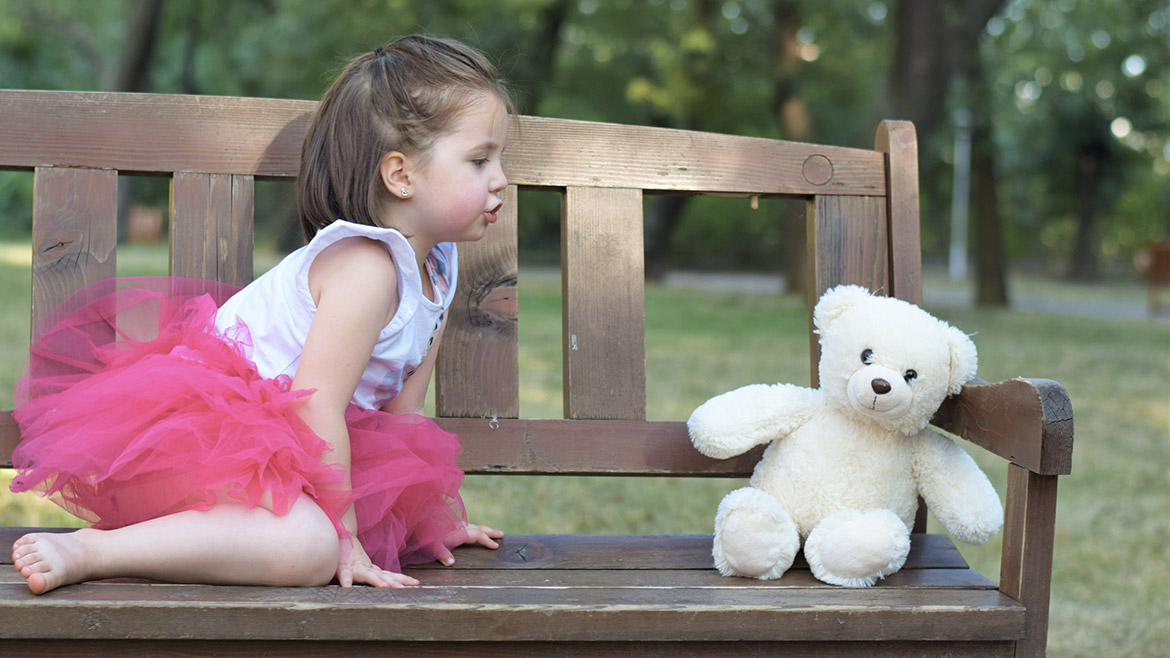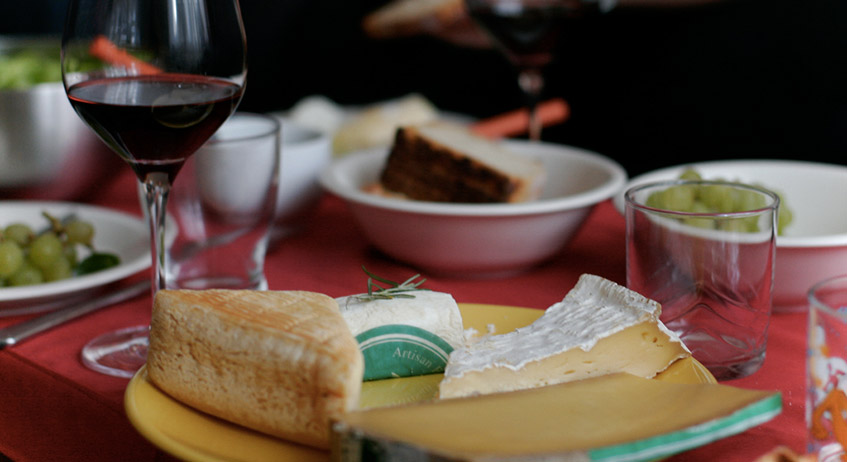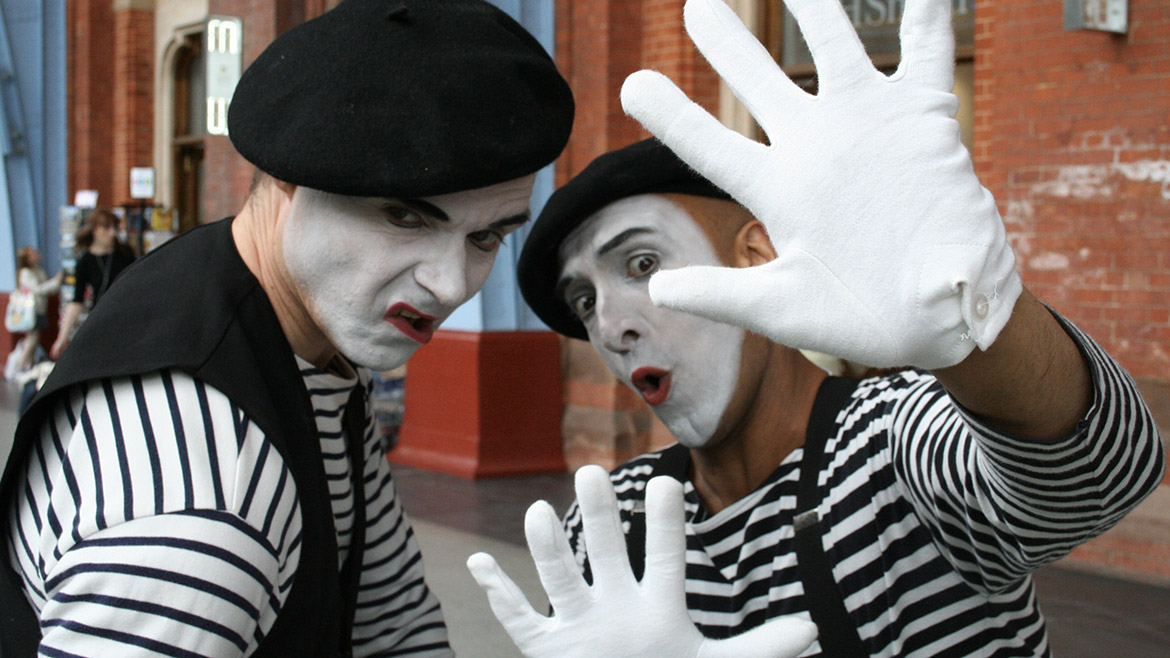
9 French nursery rhymes that will make you go WTF?
At home we probably listen to and sing more French children’s songs than English. And that’s fine, it’s nice to have an alternative to Old MacDonald and The Wheels on the Bus. At first I just sort of hummed along, or joined in when I could make out the words. But gradually, as my French improved, I began to understand the lyrics and was often left thinking, “Wait – what?” And so in the spirit of sharing, I present a lyrical analysis of some my favourite French nursery rhymes.
1. Une souris verte
Unsettling adventures of a mouse, captured and forced to undergo scientific experimentation. The mouse is dropped in water and oil as the behest of scientists (“monsieurs” in the songs, though the inference is clearly men of science) in the mistaken – absurd, even – belief that the mouse will become hot and turn into a snail. The mouse, surviving these outrages, is then forced to live in drawers, hats and – final humiliation – undergarments. The mouse protests initially verbally, then by pooing. The mouse is green, which is perhaps why it is the subject of these studies, though this is never explicitly stated.
2. Promenons-nous dans les bois
Curious tale of a wolf who will only kill when fully dressed. The children, walking through the woods, are strangely confident that they will not be attacked, even going as far as to taunt the wolf (“Do you hear us? What are you doing?”). The wolf, in turn, gives a blow by blow account of the items of clothing he has added. Perhaps this is a kind of ritual on his part, as serial killers are known to sometimes have. The wolf finally attacks the children but is unsuccessful in his attempt, falling into some water instead. Was the presence of the water the reason for the children’s confidence? The song leaves us with more questions than answers.
3. Dans sa maison un grand cerf
Heartwarming story of different species forming an alliance against a common enemy. Through the window of his house, a deer spies a rabbit being chased by a hunter. Desperate to escape, the rabbit frantically knocks at the deer’s door. Even though the rabbit has led a hunter to his door, the deer welcomes the rabbit inside where the pair affirm their new friendship by shaking hands (paws? hooves?). The hunter now has two prey within easy range yet he makes no attempt to enter; we do not know why.
4. Fait dodo, Colas, mon petit frère
A lullaby sung all over France in quiet desperation that baby will eventually sleep. Oddly this is sung from the point of view of a sibling to his/her little brother (Colas), not a parent. In the song, the sibling promises that Colas will have some milk if he goes to sleep. This is nonsense! How can a baby drink milk while asleep? Still, this is presumably a child making these rash promises. Where are the parents while their son is being cared for by an infant? Mum is apparently upstairs making a cake and dad is downstairs making chocolate. What kind of house do these people live in? All very strange.
5. Frère Jacques
Probably the most well-known French nursery rhyme, this classic tackles important subject of lazy monks. Brother Jacques has slept in and has neglected to ring the bells for morning mass! Should we read into this a criticism of the Catholic church, and of monasteries in particular? Perhaps, but my sympathies are firmly with Jacques. Who among us has not failed to set their alarm clock and overslept?
6. Les petits poissons dans l’eau
A utopian vision of big fish and small fish swimming together happily. Small fish swim just as well as big fish! An uplifting anthem for all ages.
7. Petit escargot
Enchanting in its simplicity, in this song we discover the joy of a snail who pokes his head out of his shell when it rains. Life is short in France for snails, and so pleasure must be taken where it is found.
8. Ah les crocodiles!
Perhaps less widely known than the others, this is a rousing song whose lyrics are tinged with sadness. It is also my personal favourite. It tells the peculiar tale of a war between Egyptian crocodiles and elephants (no nationality given). At the beginning of the song, a crocodile leaves the Nile, bidding farewell to his children with his tail “dragging in the dust”- a particularly heart-rending detail. They leave to fight the elephants and no more is heard of them. “They left and we don’t talk about them anymore” go the lyrics. The crocodiles simply disappear and it is as if they never existed. How cruel!
Or so I thought. Turns out the book we had only had one verse and the complete song details the battle. SPOILER ALERT: there is no clear outcome to the battle. The crocodile (confusingly the song jumps between plural and singular throughout) flees from the battle and returns to his children. A happy ending?
9. Alouette, gentille alouette
Talking of cruelty, how about a song about butchery? Alouettes, or larks, have their feathers plucked in this song. First the head, then the beak (odd, beaks aren’t feathered), then neck and back. The breast of the bird, where most meat and feathers are found, isn’t plucked. Clearly this is inexpert work.
If this has given you a taste for some comptines, I’d really recommend the books that let you listen to music by pressing a button. Kids love them and they’re a good way to learn the songs yourself.
Do you have any favourite French nursery rhymes? Are there any that have weirder lyrics than those above? Tell us in the comments, and please share if you’ve enjoyed! 🙂






Anne
Colas will probably get his milk after he wakes up… And it was nothing rare in previous centuries for older kids to care for their younger siblings while Mummy was the kitchen (upstairs because people did not live on the ground floor, that was for the animals, think of a chalet in the mountains) and Daddy cut the wood (no chocolate in the version I know)
As for the green mouse, well it’s apparently a metaphor for a soldier caught by his ennemies…
My favorite is “Auprès de ma blonde”, hopefully if it has a second meaning to it (and “comptines”, like nursery rhymes, often do), it’s not a dirty one!
admin
Indeed plenty of older siblings look after the young ‘uns nowadays too… Very interesting about the meaning of the green mouse – I suspect I’ll be doing some googling on the subject later. Will check out ‘Auprès de ma blonde” too, I’m always open to new nursery rhymes 🙂
Laure-Line
Friar Jacques was nit so lazy, actually, as the ‘matines’ are not the morning mass but the earliest prayers during the night, usually about 4 am if I am right. There is no criticism in it, and it is actually a canon. Teenagers and adults keep singing it as such on pilgrimages for fun.
Rahul
Great Collection, Thanks for sharing.
Rahul.
Tamara Sprague
Check out Arc en fuel by Alain le lait! It disturbs my high school students (that’s why I show it!)
Aurélien
I can’t tell if this is serious or not. Anyway, une souris verte is about sevices infliged to oponent soldiers when captured in some civils war (chouans).
Alouette is about someone who is on a breaking wheel (like Jean Petit), and the order wich their bones will be broken.
Haan
Hey guys!! I have Electronic dance music versions of them here : https://soundcloud.com/hasinaandrian/sets/haan-ghost-productions
Heriberto Shipp
Looking for fresh buyers? Get hundreds of people who are ready to buy sent directly to your website. Boost revenues super fast. Start seeing results in as little as 48 hours. For more info reply to: paul5854sau@gmail.com
Adellicle Cat
My favorite French song is Cadet Rouselle! Have you heard that one? It’s a very weird song itself! Rouselle has a dog that runs away when it’s called, a cat who has no eyes (but can still climb to the attic), and children of his own even though he is described as a “good child” – although that could just be a term of affection.